为什么亚马逊、Meta、谷歌用人工智能取代人类以及为什么这会适得其反?
到2025年,全球就业市场正在经历历史性的转变,亚马逊和谷歌等公司正在拥抱自动化和人工智能——这导致了大规模裁员,并重新定义了人类工作的未来。
亚马逊最大规模裁员将于明天开始
亚马逊计划于2025年10月28日开始其有史以来最大规模的裁员,裁减约30,000个企业职位——几乎占其350,000名白领员工的10%。路透社、CNN和CNBC的报道确认,受影响的员工将从周二(美国时间)开始通过电子邮件收到通知。
此次裁员将影响多个部门,包括亚马逊网络服务(AWS)、人力资源、运营和设备。首席执行官安迪·贾西将此举描述为“多年的重组”一部分,旨在精简运营并将人工智能(AI)整合到关键职能中。
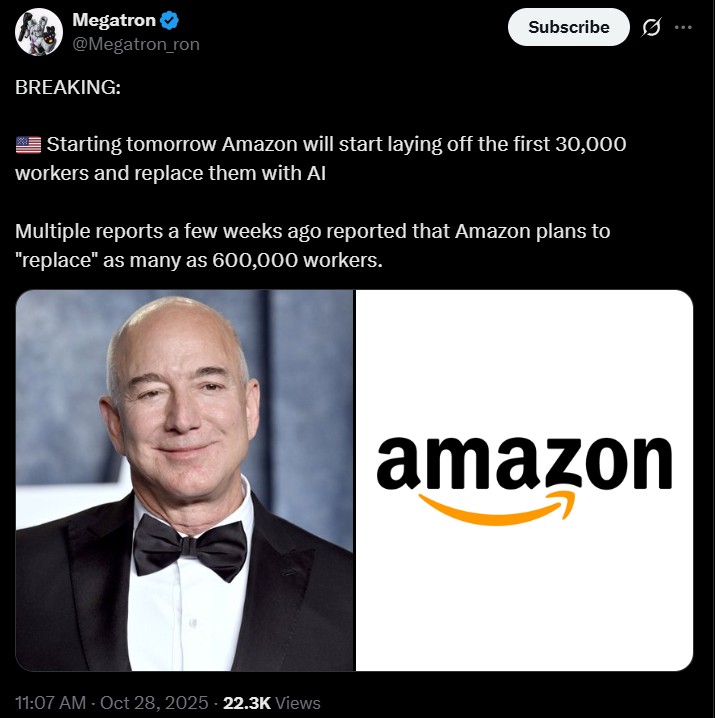
来源: Megatron X
此次裁员是在2022年至2023年间裁减27,000个职位之后进行的。尽管失去了工作,亚马逊计划在假日高峰期雇佣250,000名季节性工人。专家表示,这一转变标志着一个更大的变革——自动化和人工智能正在迅速重塑企业工作的未来。
此前,亚马逊正在招聘薪资为50万美元的加密货币职位,而现在却裁减30,000个职位,突显了其战略的重大转变。这一对比显示了亚马逊如何迅速从传统运营转向技术、自动化和区块链驱动的创新。
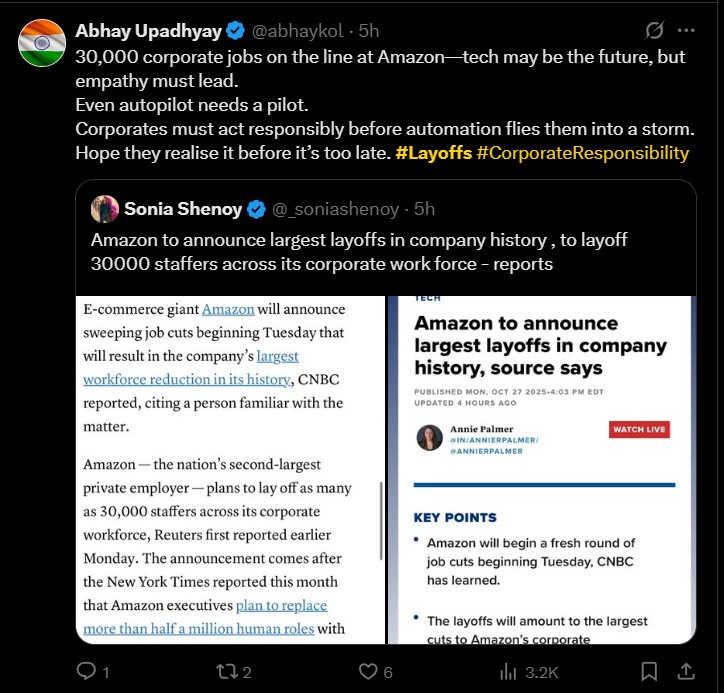
来源: Abhay Upadhyay X
亚马逊为何裁减人类职位
裁员是首席执行官安迪·贾西计划“更精简、更快速”的一部分,旨在通过减少官僚主义和利用人工智能来自动化日常任务。
内部报告显示,亚马逊计划到2027年用机器人、人工智能和自动化取代多达600,000个职位——精简仓库、物流和行政运营。
疫情期间的招聘热潮几乎使员工人数翻了一番,但随着电子商务增长放缓和运营成本上升,公司现在正在削减多余的员工。
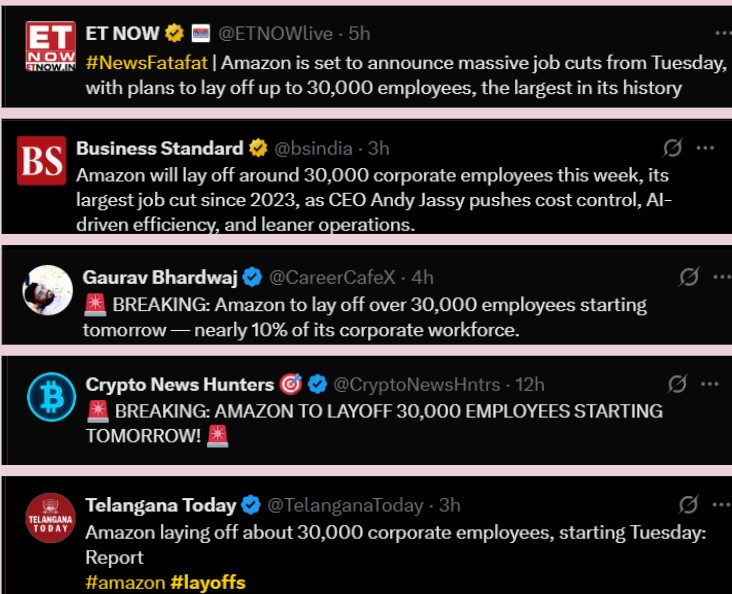
来源: X
2023年牛津经济学的分析警告称,到2030年,全球自动化可能会消除2000万个制造业职位,这一趋势现在在白领行业中显现。
这一重组凸显了技术驱动的效率越来越被优先考虑,而非人力主导的流程。
其他科技巨头的大规模裁员:2025年就业市场
仅在2025年,超过200家科技公司裁员约98,000名员工。2025年见证了各行业的大规模全球裁员,部分裁员规模为近期历史上最大。
DHL和雪佛龙各宣布裁减8,000个职位,而雅诗兰黛裁员7,000名员工,BP则减少了7,700个工作岗位。
其他主要裁员来自德国商业银行(3,900)、塞恩斯伯里(3,000)和约翰霍普金斯大学(2,000)。
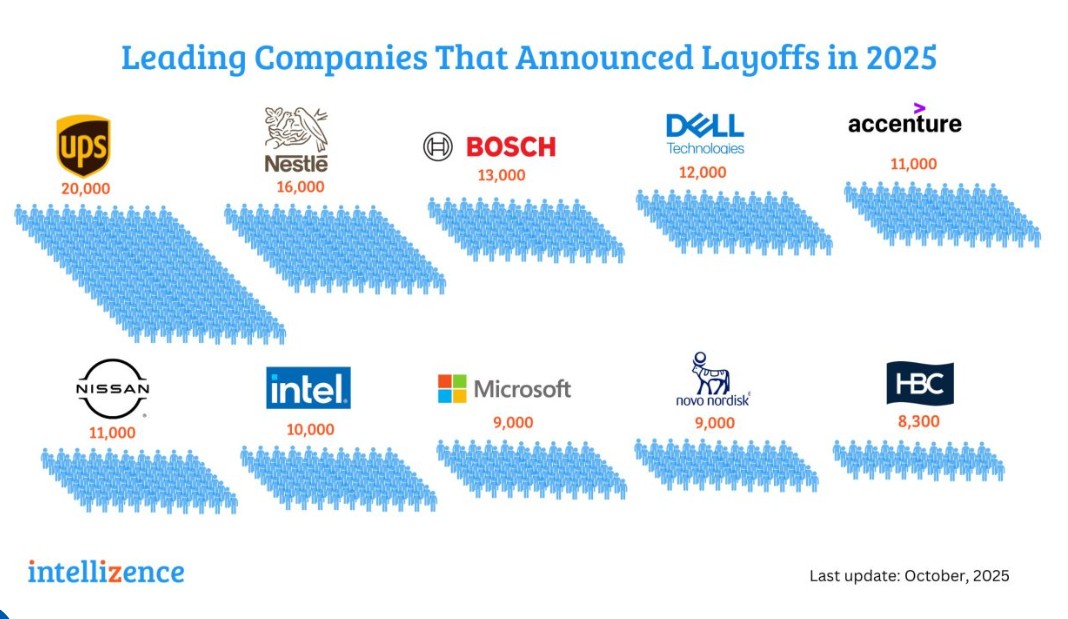
来源: Intellizence
谷歌、Meta、微软、Salesforce、IBM、惠普和甲骨文等科技巨头也加入了这一潮流,理由是自动化。
微软裁减了15,000个职位,Meta在其人工智能部门削减了600个职位,谷歌裁掉了100个云设计岗位,英特尔则以22,000个裁员居首。
高盛、花旗和巴克莱等金融巨头,以及蓝色起源、波音和沃尔玛等航空航天和零售领军企业也裁减了员工。
Salesforce还将最近的裁员归因于技术整合。随着自动化重塑运营,专家警告称,快速转向以人工智能驱动的效率可能会带来高昂的人力成本。
一些后悔的决定:为什么用人工智能取代人类是灾难?
从特斯拉和微软到谷歌和麦当劳,企业正在艰难地认识到,用人工智能取代人类可能是灾难性的。在急于自动化的过程中,许多公司面临服务错误、客户反弹和生产力下降。
一份报告显示,超过90%的人工智能项目未能提供可衡量的价值,而像Klarna、Duolingo和《体育画报》这样的公司在严重的性能问题后被迫恢复人力运营。
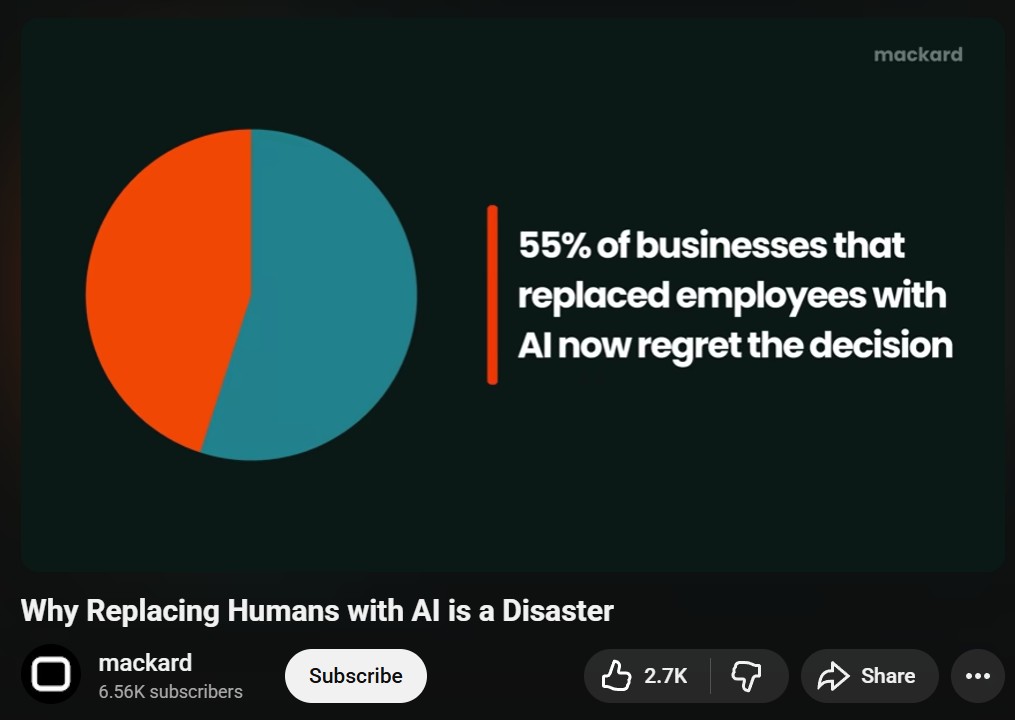
来源: YouTube
分析师表示,人工智能的热潮更多是由投资者的炒作和削减成本的压力推动,而非真正的准备。专家强调,人工智能在增强人类努力时效果最佳,而不是取代人类——这证明人类在质量和判断力方面是不可替代的。
结论
虽然技术方面承诺了效率和创新,但完全取代人类的做法证明代价高昂。未来在于平衡——技术应增强人类潜力,而不是消除它。
免责声明:本文章仅代表作者个人观点,不代表本平台的立场和观点。本文章仅供信息分享,不构成对任何人的任何投资建议。用户与作者之间的任何争议,与本平台无关。如网页中刊载的文章或图片涉及侵权,请提供相关的权利证明和身份证明发送邮件到support@aicoin.com,本平台相关工作人员将会进行核查。




